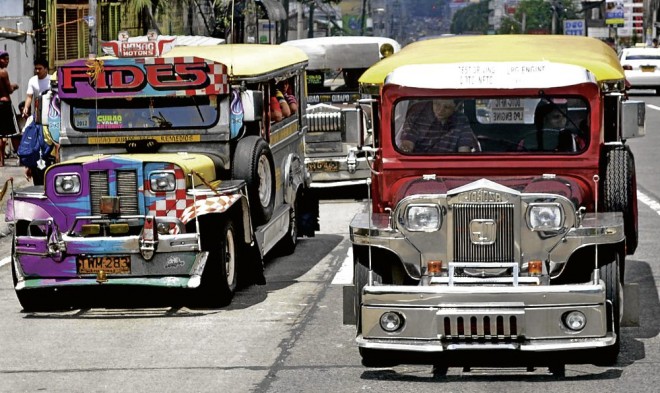MANILA, Philippines — Public utility jeepneys (PUJs) must now be allowed to serve commuters who, however, should be discouraged from talking to prevent the spread of the coronavirus disease 2019 (COVID-19), former Sen. Antonio Trillanes IV said Tuesday.
“Talking while inside public transportation (PUJ, PUB, MRT, taxis, etc) should be discouraged to minimize further the spread of the virus,” Trillanes said in a statement on Tuesday.
While mass transportation is now allowed to operate in areas under GCQ with reduced passenger capacity, PUJs are still prohibited from resuming operations
READ: DOTr bares 2 phases of public transport revival in GCQ areas
Trillanes branded this prohibition on the use of PUJs as “very unfortunate.”
“This would surely be disastrous and extremely inconvenient for hundreds of thousands of commuters who would be stranded,” he said as he noted the expected increase in the movement of goods and labor following the government’s decision to open up the economy while dealing with the coronavirus pandemic.
READ: Chaos as thousands return to work in Metro Manila
“True, some claim they are unsightly, antiquated and accident-prone vehicles, but for the moment, there is simply no other alternative for commuters,” the former senator added.
Trillanes recognized that social distancing inside PUJs is impossible but pointed out that “most countries that have successfully contained the virus also did not practice social distancing inside their public transportation for the same reason that it was impossible to do so.”
“The subways and MRTs now in Japan, South Korea, Taiwan and Hongkong are just as packed by people during rush hour as before the pandemic. Also, airlines are still seating passengers the same way as before,” he said.
“The only noticeable change is the mandatory use of face masks, which is already being practiced here in our country.”
The former senator then proposed that once PUJ operations are allowed, drivers must be required to wear masks and gloves.
PUJs, he said, must also have conductors to collect the fare and spray alcohol on the hands of the passengers before boarding. The conductors should likewise be required to wear masks and gloves.
